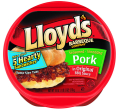New product launches down 51%
Sun Chips packed in PLA
Kraft vows to lose 25 million packaging pounds
Barbecue tub shucks paper sleeve
Turkey and ham in marriage of convenience

by Pan Demetrakakes
Executive Editor
Pallets are a base for loads of goods. Now they’re the basis for a war.
The decision to use wood or plastic pallets has centered mainly on logistics: whether and how to persuade the goods receiver to send back and/or recycle the pallet. But now makers of wooden and plastic pallets are sniping directly at each other over issues of safety, primarily fire safety.
On one side isiGPS, for Intelligent Global Pooling Systems, an Orlando, Fla.-based company that markets all-plastic pallets with embedded radio frequency identification tags. On the other is theNational Wooden Pallet and Container Association(NWPCA), an industry group of pallet recyclers.
The major focus of the dispute is fire safety. Each side accuses the other of using materials that either run the risk of fire in pallet storage areas, or suppress that risk in ways that bring other risks.
At issue for wooden pallets is the composite wood that many of them use for the blocks-the chunks of wood that separate the upper and lower decks. Composite wood is made from wood fragments and sawdust, and is held together with adhesives that often contain urea-formaldehyde, which is flammable. Spurred in part by two big pallet fires in Phoenix, Ariz., in 2007, theNational Association of State Fire Marshalsbegan reevaluating the fire risk of wooden pallets with composite blocks.
There’s more at stake than the actual risk of fire. If fire marshals rate the risk high enough, it could lead to insurance companies requiring either an expensive sprinkler system upgrade in pallet storage areas, or a surcharge in premiums.
The state fire marshals association had considered a proposal to upgrade the risk factor for wooden pallet storage. But in the face of opposition by NWPCA and others, the fire marshals backed away from that proposal in April and instead formed a working group to study the matter further.
NWPCA is firing back at plastic pallets. Its target is deca-bromine, a fire retardant often used in plastic pallets, which would otherwise have a higher risk of fire than wooden ones. NWPCA claims that deca-bromine is toxic, and has been found in American women’s breast milk at concentrations up to 50 times higher than in Europe.
NWPCA concedes that deca-bromine is encapsulated during the extrusion of plastic pallet materials, but claims it has potential to enter a plant environment under two circumstances: if pallets are doused with water during mass rinsing (hydrocooling) of fresh produce, or if they’re abraded by being dragged on a floor or otherwise damaged.
“Whenever you create dust from scuffing that [plastic] pallet, you’ve got 8% deca-bromine floating around, and people are breathing that,” says NWPCA president Bruce Scholnick.
Bob Moore, chief executive officer of iGPS (and a former CEO of CHEP, the largest reusable wood pallet supplier in America), responds that NWPCA is arguing in bad faith to try to stanch the decline in market share of wooden pallets.
“I don’t think this issue is about deca-bromine at all,” Moore says. “It’s about a diminishing and dying industry.” He adds that tests by an independent lab hired by iPGS showed no evidence of deca-bromine leaching during abrasion, and that tests by the Food and Drug Administration has shown that transfer of deca-bromine to product during hydrocooling is one-fifth of the FDA’s minimum.
TOP DEVELOPMENTS
New product launches down 51%Rollouts of new food and beverage products declined 51% in the first quarter of 2009 compared with the first quarter of 2008, according to a report fromMintel International. The steepest food declines were in product launches for chocolate (55%), sugar and gum confectionery (64%) and dairy (60%). A Mintel spokesperson attributed the decline to low consumer confidence, but added that Mintel does not expect the decline to last.
Sun Chips packed in PLA
Frito-Lay is phasing in compostable bio-based resin as the packaging material for itsSun Chipssalty snacks. The PepsiCo unit is about to roll out flexible bags for the 10.5-ounce size that feature polylactic acid (PLA) as the outer layer. By early 2010, Frito-Lay plans to introduce 100% PLA bags for Sun Chips. The compostable packaging plays into Frito-Lay’s positioning of Sun Chips as an ecologically correct brand. The PLA is supplied byNatureWorks LLC.
Kraft vows to lose 25 million packaging pounds
Reducing 25 million pounds of packaging by 2011 is one of the sustainability goals of Kraft Foods. The company released a report detailing its progress so far in sustainability and outlining goals for the future. Among one of the most successful initiatives has been increasing the amount of coffee Kraft sources from growers who are certified by the Rainforest Alliance-which, the report says, helped boost sales of away-from-home instant and espresso coffee by 50%. Other goals for 2011 include reducing plant energy usage and carbon dioxide emissions by 25%, and plant water consumption and waste by 15%.

NEW PACKAGES
Barbecue tub shucks paper sleeveLloyd’s, the heat-and-eat barbecued meat line from Hormel Foods, has shed its outer paperboard sleeve and redesigned its polypropylene tub. The new tub, fromAirlite Plastics, has flat walls on two sides, corresponding to recessed tabs on the lid that form “cool spots” for easy handling after microwaving. The recessed sides also allow the tub to be merchandised upright. Hormel estimates that losing the sleeve will save almost 1,000 tons of paperboard a year.

Land O’Frost, the third largest U.S. manufacturer of lunchmeat, has combined turkey and ham in a single package. The Land O’Frost Sub Sandwich Kit, billed as enough to make a dozen 6-inch submarine sandwiches, is a 24-ounce package with separate inner packaging for ham and turkey. The outer pouch features a reclosable zipper fromZip-Pak.
